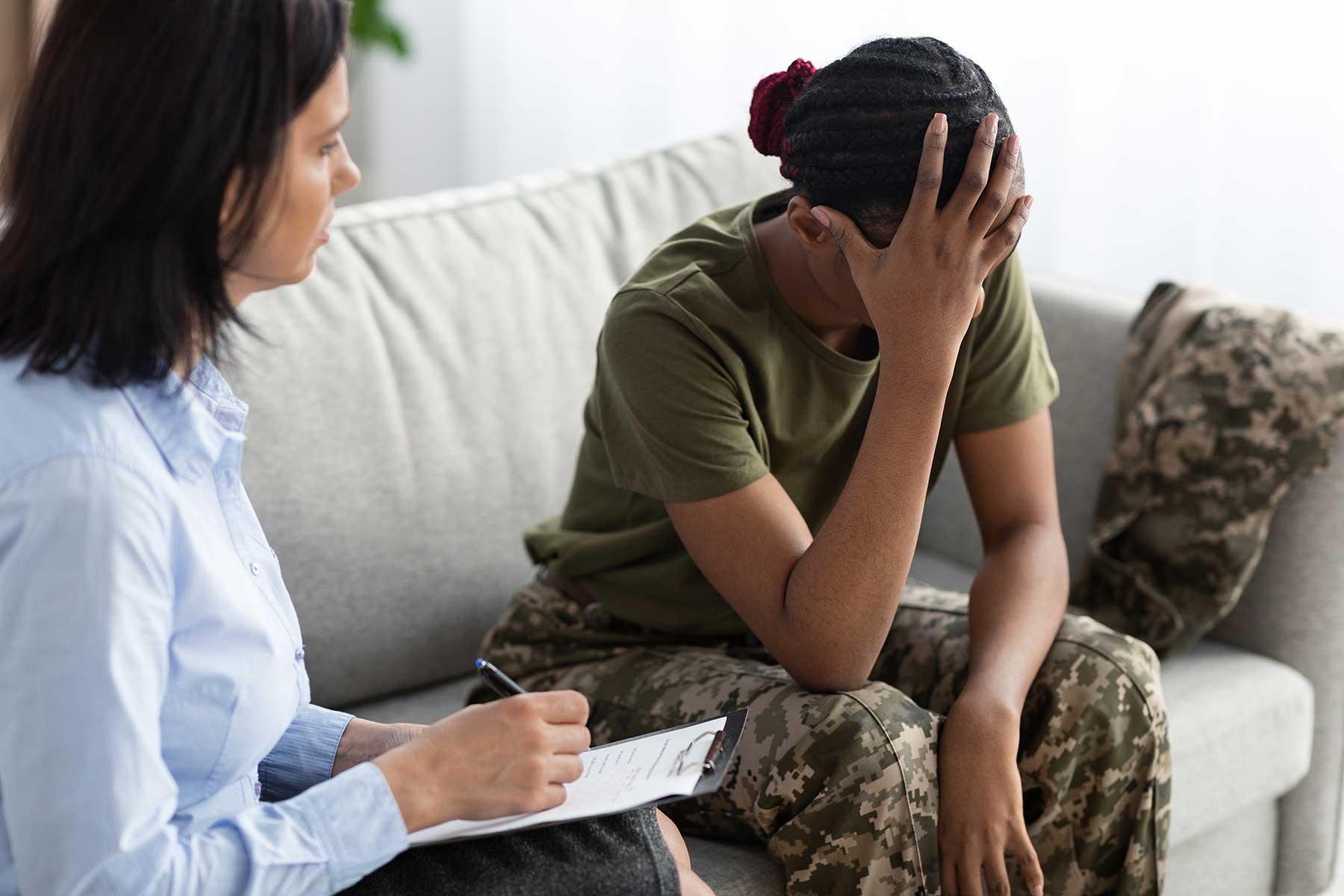Post-traumatic stress disorder (PTSD) is a serious anxiety disorder that can develop after exposure to a traumatic event. Symptoms of PTSD can include flashbacks, nightmares, emotional numbness, and avoidance of certain activities or situations that are reminders of the event. It is important to seek help for PTSD as it can significantly affect a person’s quality of life.
Learn more about PTSD treatment in Laguna Beach, CA by calling Oceanfront Recovery at (877) 296-7477. We are located blocks away from the ocean, where you can heal and recover from PTSD in a supportive, serene environment.
How to Help Someone With PTSD
PTSD is not something you should try to solve on behalf of your loved one. Often, PTSD requires concerted treatment to alleviate symptoms and help people fully address their past trauma. At the same time, there are several ways you can provide PTSD help to an affected loved one. Here are a few tips focused on how to help someone with PTSD:
Provide Social Support
Many people with PTSD withdraw from friends, family, and social activities. Isolation is not going to help someone and will likely intensify their symptoms. While it’s important to respect boundaries, in-person interaction with loved ones is believed to be essential in helping people recover from PTSD. Providing positive social support could look like this:
- Doing everyday activities with your loved one, like walking, going out to eat, or seeing a movie
- Be patient and understand that recovery takes time
- Please educate yourself about PTSD and how it tends to manifest
- Accept negative feelings but don’t let them come to define your relationship
- Take care of yourself in order to take care of your loved one
If you’re trying to help a loved one struggling with PTSD, Oceanfront Recovery can provide the resources and support necessary for them to heal.
We look forward
Listen
While listening to your loved one may sound simple and easy, when it comes to PTSD, it can be incredibly difficult. If your loved one is willing to share about their trauma, it may be hard to hear.
Listening is critical. Encourage them to continue being open by being a loving and non-judgmental listener. You should also avoid communication pitfalls such as offering unsolicited advice or invalidating their experience.
Rebuild Safety
Something that marks PTSD is a lack of feeling safe. Even though what happened to them is in the past, your loved one carries the scars of their trauma. They likely feel like the world is no longer safe. Help them create a safe environment by forging routines, minimizing stress in the home, making positive future plans, keeping your promises and commitments, and looking for ways to empower them.
Learn to Manage Triggers
People with PTSD tend to have a set of triggers that set off or intensify their symptoms. Take time to understand what these are and help your loved one put safeguards in place to manage these triggers and potentially even eliminate them.
Connect Your Loved One With PTSD Treatment at Oceanfront Recovery
One of the ways to help someone you love is to connect them with high-quality PTSD treatment. Oceanfront Recovery offers a PTSD treatment program that includes therapies such as cognitive-behavioral therapy and dialectical behavior therapy. We combine evidence-based treatment with holistic modalities in a nurturing environment.
Contact Oceanfront Recovery today at [DIrect] to learn about our treatment in Laguna Beach, California, where the serene waves of the Pacific Ocean are part of the healing. We will work together to create a comprehensive care plan for your loved one tailored to their needs and goals for recovery. We aim to help people achieve the life they deserve.







